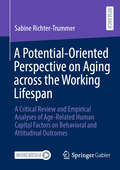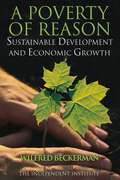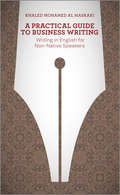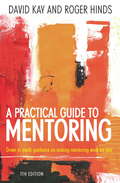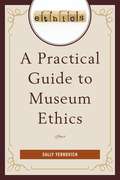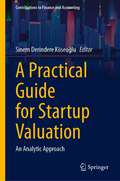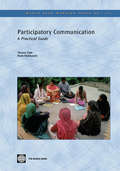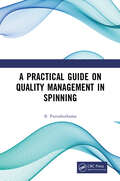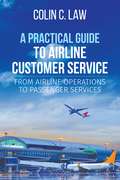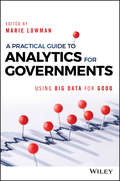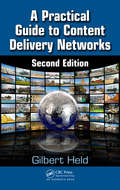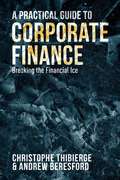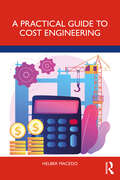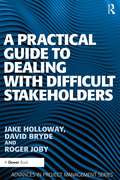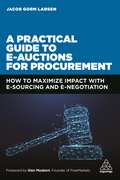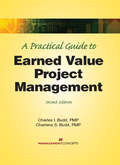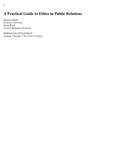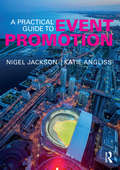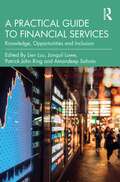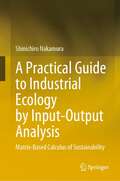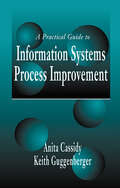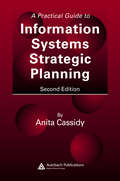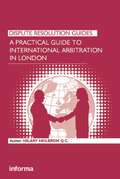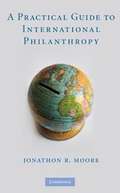- Table View
- List View
A Potential-Oriented Perspective on Aging across the Working Lifespan: A Critical Review and Empirical Analyses of Age-Related Human Capital Factors on Behavioral and Attitudinal Outcomes
by Sabine Richter-TrummerConsidering decreasing birth rates and increasing rates of life expectancy, the workforce is rapidly aging – resulting in a more age-diverse labor market. So far, research in IWO-psychology has not fully addressed age-related constructs and issues of new work with longitudinal methods representing changes over time more adequately. To enhance predictions for a rapidly aging workforce, this research focuses on the influence of the potentials of actively aging individuals on frequently cited attitudes and behaviors over the working life span. The results suggest that a more differentiated view of age is partially effective in reducing the probability of turnover intention among IT-employees over time, the age-entrepreneurship relation can be clarified by focusing on the inconsistencies of age and the dimensions of human capital partly contribute to engaging in postretirement work. The outcomes have implications regarding the temporality of aging, entrepreneurial generational identity, calling to work and residuals about postretirement work. Qualitative follow-up research addressing the reasons for turnover intention and work activities retirees experienced as calling seems promising.
A Poverty of Reason: Sustainable Development and Economic Growth
by Wilfred BeckermanEnvironmental activists, politicians and celebrities have touted the wisdom of "sustainable development" as though its meaning and value were clear. But the concept has barely been defined, let alone subjected to scientific, economic, and philosophical scrutiny.Oxford University economist Wilfred Beckerman puts "sustainable development" to the test, questioning several of its core claims: Will economic growth burn itself out by depleting the natural resources it requires? Will global warming wreak widespread havoc? Does human activity threaten to throw a delicate planet dangerously "out of balance"? Do future generations possess rights that morally override the claims of those alive today? At what price? After examining the evidence, Beckerman finds "sustainable development" lacking on both scientific and moral grounds. Although millions of people lack clean air and water, and are plagued by deteriorating ecosystems, these problems are caused not by "unsustainable development" but by poverty, poorly defined property rights, and lack of freedom of opportunity. And, Beckerman concludes, because "sustainable development" recommends policies that would worsen these conditions (for present and future generations), it hardly occupies the moral high ground, as its supporters claim. A Poverty of Reason provides a critical examination of this highly controversial topic and will prove essential in the ongoing debate about environmental and economic practices.
A Practical Guide To Business Writing
by Khaled Mohamed Al MaskariNowadays, letters, reports and emails are vital components of business practice. Communication is increasingly global, but it's not any easier to understand or contribute to for non-fluent English speakers. There is increasing pressure to be able to produce effective documents for a business environment but little help out there to do so efficiently, resulting in wasted time and uncomfortable business communication. This book provides a wealth of practical information for any person who aims to produce short, effective documents within the work environment. It offers sensible, valuable and helpful rules for producing effective short reports, memos, letters and e-mails that are clear, concise and easy to read for the busy manager or supervisor working in the demanding setting of modern industry or commerce. But it goes further: not only are rules provided for the inexperienced business writer, but models are proposed which provide solutions for a whole host of business situations - providing help, support and encouragement for the many thousands of business writers who need to feel confident in their writing.
A Practical Guide To Mentoring 5e: Down To Earth Guidance On Making Mentoring Work For You
by David Kay Roger HindsMentoring is a rewarding experience. You will play an active and invaluable part in the development of another person and further your own career at the same time. This concise book will take you step-by-step through the process and show you: - How to become an effective mentor - What qualities, methods and processes are required - How to prepare yourself and the mentee - How to avoid the common pitfalls. Whichever sector you work in, this extremely practical book will clarify the whole mentoring process from start to finish, and support you every step of the way.
A Practical Guide To Mentoring 5e: Down to earth guidance on making mentoring work for you
by David Kay Roger HindsMentoring is a rewarding experience. You will play an active and invaluable part in the development of another person and further your own career at the same time. This concise book will take you step-by-step through the process and show you: how to become an effective mentor; what qualities, methods and processes are required; how to prepare yourself and the mentee; how to avoid the common pitfalls. Whichever sector you work in, this extremely practical book will clarify the whole mentoring process from start to finish, and support you every step of the way.
A Practical Guide To Museum Ethics
by Sally YerkovichAre your collections up for grabs? Does the spouse of one of your trustees have too much to say about developing the exhibition schedule? How much is too much public participation? Where does a curator's authority begin and end? With money increasingly difficult to raise, is a museum more likely to accede to potential funders' demands even when those demands might compromise the museum's integrity? When a museum is struggling with debilitating debt, should the sale of selected items from its collections and the use of the resulting proceeds bring the museum into a more stable financial position? When a museum attempts to build its attendance and attract local visitors by crowdsourcing exhibitions, is it undermining its integrity? Ethical questions about museum activities are legion, yet they are usually only discussed when they become headlines in newspapers. Museum staff respond to such problems under pressure, often unable to take the time required to think through the sensitive and complex issues involved. Grounded in a series of case studies, A Practical Guide to Museum Ethics confronts types of ethical dilemmas museums face and explores attempts to resolve them in chapters dealing with -accessibility, disability, and diversity; -collections; -conflict of interest; -governance; -management; -deaccessioning; and -accountability and transparency. Suitable for classroom use as well as a professional reference, here is a comprehensive, practical guide for dealing with ethical issues in museums.
A Practical Guide for Startup Valuation: An Analytic Approach (Contributions to Finance and Accounting)
by Sinem Derindere KöseoğluThis book sheds new light on the most important contemporary and emerging startup valuation topics. Drawing on the first-hand professional experience of practitioners, professionals, and startup experts from various fields of finance, combined with a sound academic foundation, it offers a practical guide to startup valuation and presents applications, practical examples, and case studies of real startup ecosystems. The book discusses pressing questions, such as: Why are startups in California are higher valued than those in New York? Or why do startups based in London receive higher valuations than those in Paris, Berlin, or Milan, even when they are based in similarly-sized economies, share the same industries, and often even have the same investors? Answering these questions, the authors present key topics, such as hierarchical and segmented approaches to startup valuation, business plans, and sensitivity analysis, many methods such as venture capital valuation, first Chicago valuation, scorecard valuation, Dave Berkus valuation, risk factor summation valuation, and discounted cash flow valuation, in addition to business valuation by data envelopment analysis and real options analysis, as well as critical conceptual issues in the valuation such as expected returns of the venture capital and price versus value concepts, among others. The book will help angel investors, venture capitalists, institutional investors, crowd-based fractional investors, and investment fund professionals understand how to use basic and advanced analytics for a more precise valuation that helps them craft their long-term capital-raising strategy and keep their funding requests in perspective. It will also appeal to students and scholars of finance and business interested in a better understanding of startup valuation.
A Practical Guide in Participatory Communication
by Paolo Mefalopulos Thomas TufteWhat do we mean when we say participatory communication? What are the practical implications of working with participatory communication strategies in development and social change processes? What experiences exists in practice that documents that participatory communication adds value to a development project or programme? The aim of this user guide on participatory communication is to provide answers to some of these questions. Many communication practitioners and development workers face obstacles and challenges in their practical work. A participatory communication strategy offers a very specific perspective on how to articulate social processes, decision-making processes and any change process for that matter. Participatory approaches are nothing new. However, what is new is the proliferation of institutions, especially governmental but also non-governmental, that seek participatory approaches in their development initiative. This guide seeks to provide perspectives, tools and experiences regarding how to go about it with participatory communication strategies. It is conceived as a guide that hopefully can be of relevance and utility for development workers in the field. It is targeted at both at government and their officials, World Bank staff and at civil society.
A Practical Guide on Quality Management in Spinning
by B. PurushothamaThis book is a hands-on guide that discusses quality management in spinning. It details the techniques, insights and best practices that weave excellence into every fiber. The subject matter of this book discusses the concepts of product objectives and the impact of product features at customer’s end with examples.Print edition not for sale in South Asia (India, Sri Lanka, Nepal, Bangladesh, Pakistan and Bhutan)
A Practical Guide to Airline Customer Service: From Airline Operations to Passenger Services
by Colin C. LawA Practical Guide to Airline Customer Service is written for airline executives and undergraduate students who are preparing for a career in the airline service industry. Those working in similar functions and fields can also benefit from this book. This book primarily focuses on the importance of customer service in the airline industry. This includes basic airline operations and essential communication skills, and how airline service agents interact with passengers at every contact point of the travel process. It is a useful guide for anyone seeking a successful and rewarding career in the airline industry.
A Practical Guide to Analytics for Governments: Using Big Data for Good
by Marie LowmanAnalytics can make government work better—this book shows you how A Practical Guide to Analytics for Governments provides demonstrations of real-world analytics applications for legislators, policy-makers, and support staff at the federal, state, and local levels. Big data and analytics are transforming industries across the board, and government can reap many of those same benefits by applying analytics to processes and programs already in place. From healthcare delivery and child well-being, to crime and program fraud, analytics can—in fact, already does—transform the way government works. This book shows you how analytics can be implemented in your own milieu: What is the downstream impact of new legislation? How can we make programs more efficient? Is it possible to predict policy outcomes without analytics? How do I get started building analytics into my government organization? The answers are all here, with accessible explanations and useful advice from an expert in the field. Analytics allows you to mine your data to create a holistic picture of your constituents; this model helps you tailor programs, fine-tune legislation, and serve the populace more effectively. This book walks you through analytics as applied to government, and shows you how to reap Big data's benefits at whatever level necessary. Learn how analytics is already transforming government service delivery Delve into the digital healthcare revolution Use analytics to improve education, juvenile justice, and other child-focused areas Apply analytics to transportation, criminal justice, fraud, and much more Legislators and policy makers have plenty of great ideas—but how do they put those ideas into play? Analytics can play a crucial role in getting the job done well. A Practical Guide to Analytics for Governments provides advice, perspective, and real-world guidance for public servants everywhere.
A Practical Guide to Content Delivery Networks
by Gilbert HeldFollowing in the tradition of its popular predecessor, A Practical Guide to Content Delivery Networks, Second Edition offers an accessible and organized approach to implementing networks capable of handling the increasing data requirements of today's always on mobile society. Describing how content delivery networks (CDN) function, it provides
A Practical Guide to Corporate Finance
by Christophe Thibierge Andrew BeresfordThis textbook offers an approachable guide to all key concepts within corporate finance. Emphasizing the use of common sense rather than number-crunching models, it provides a compact, easy to read experience for any reader, practitioners and students alike, whatever their background. A Practical Guide to Corporate Finance begins with the basics of how to read financial statements and how to estimate future cash flows. It also includes a guide to subjects such as capital budgeting decisions, the cost of financing for businesses, cash and working capital management, the process of business valuation, and how stock markets work. This textbook breaks the financial ice by offering real, practical advice, helping the reader to avoid common pitfalls, and translate the 'financialese', or business jargon that can cause confusion for those without a financial or banking background. Every chapter features real-life applications, and is punctuated with mini case studies in the form of a 'Slice of Life' and numerous dialogues that help shape the comprehension of the reader.
A Practical Guide to Cost Engineering
by Helber MacedoA Practical Guide to Cost Engineering aims to show you how to work as a cost engineer out in the real world.Written by an experienced cost engineer and training program developer, this book introduces the practical side of cost management (cost estimation, cost reduction, and cost control) through real cases and realistic examples from a diverse range of engineering-based projects. With examples from nuclear, oil and gas, and renewable energy sectors, the book introduces and demonstrates the activities of the cost engineer throughout a project life cycle. The content is divided into logical sections covering basic concepts, cost estimation, cost control, economic feasibility, sustainability, and more, and the chapters are packed full of features such as definitions, formulas, exercises, and examples. The focus is on providing a practical approach where the reader can first understand a concept and then apply it using an Excel tool developed by the author which allows the reader to simulate different scenarios and results.The simple approach focusing on essential information backed up by practical scenarios presented in this book allows cost engineers and related professionals to execute and understand their activities, develop their professional skills, and even develop in-house training programs. A Practical Guide to Cost Engineering is accompanied by online resources, accessible via the Routledge Resource Centre wesbite.
A Practical Guide to Dealing with Difficult Stakeholders (Advances in Project Management)
by Jake Holloway David BrydeAll project stakeholders have different needs, objectives, responsibilities and priorities. For many project managers it is disturbing to realise that, for any number of personal or professional reasons, some of their stakeholders may not be as co-operative and helpful as they expect. It could be a negative and powerful sponsor (the 'Anti-sponsor'), a demotivated team, low-maturity or unrealistic external clients, maliciously compliant gatekeepers and finance teams, or uninterested internal customers. The reality of project management is that stakeholders can be difficult! Jake Holloway, Professor David Bryde and Roger Joby bring their years of project management experience and combine it with research and insight from social psychology to delve into how and why project stakeholders can be difficult. The book describes some of the common stakeholder types - such as Sponsors, the Team, Gatekeepers, Clients and Contractors - and associated unhelpful or difficult behaviour profiles that you will often come across on projects. It then provides practical ideas, techniques and methods that will help the project manager to effectively manage the impact of these stakeholders on the project. As projects get larger and more complicated, the role and influence of stakeholders grows too. A Practical Guide to Dealing with Difficult Stakeholders will provide your project teams with the basis for a more sophisticated and resilient approach to stakeholder management.
A Practical Guide to E-auctions for Procurement: How to Maximize Impact with e-Sourcing and e-Negotiation
by Jacob Gorm LarsenA Practical Guide to E-Auctions for Procurement provides guidance to procurement professionals on how to realize the potential of e-auctions. Now is the time to optimize your e-negotiation strategy using key insights from the author Jacob Gorm Larsen, who is responsible for one of the most success and award-winning e-sourcing programs in the world.A Practical Guide to E-Auctions for Procurement presents a proven process for developing an e-auction and e-negotiation strategy, along with a catalogue of change management initiatives for securing buy-in internally in the organization. The different e-auction formats and benefits are explained in detail and demonstrated with practical examples, templates and advice that can be adopted by the reader.Jacob and the team at Maersk are at the forefront when it comes to developing robots that execute e-auctions from end-to-end and are kicking off a transformation that will fundamentally change how we consider e-auctions and negotiations. In addition, with learnings from more than 10,000 e-auctions globally, this is the book for those in procurement looking to implement, deliver and maintain a thriving e-auction program.
A Practical Guide to Earned Value Project Management
by Charles I. Budd PMP Charlene M. Budd PhD, CPA, CMA, CFM, PMPThe Best Resource on Earned Value Management Just Got Better!This completely revised and updated guide to earned value (EV) project management is the go-to choice for both corporate and government professionals. A Practical Guide to Earned Value Project Management, Second Edition, first offers a general overview of basic project management best practices and then delves into detailed information on EV metrics and criteria, EV reporting mechanisms, and the 32 criteria of earned value management systems (EVMS) promulgated by the American National Standards Institute and the Electronic Industries Alliance and adopted by the Department of Defense.This second edition includes new material on:• EV metrics• Implementing EVMS• Government contracts• Time-based earned schedule metrics• Critical chain methodologies
A Practical Guide to Ethics in Public Relations
by Jamie Ward Regina LuttrellOn a daily basis, public relations practitioners are tasked with making ethical decisions, such as advising a client to fully disclose a corporate relationship or advocating for honesty when working with the media. <p><p>A Practical Guide to Ethics in Public Relations is designed for courses in contemporary studies of public relations and communications. This text highlights the delicate balance required to navigate the values and demands implicit to the field of public relations and those that underlie society as a whole. Students are encouraged to examine their own values and compare them to those commonly encountered in a professional setting.
A Practical Guide to Event Promotion
by Nigel Jackson Katie AnglissThis Practical Guide to Event Promotion offers the reader a short and succinct overview of the range of marketing communication materials from print to social marketing that can be used to promote an event successfully to the correct target markets. It includes invaluable advice on how to identify the type of communication tools most applicable to the type of event that is being promoted and its target market; how to effectively use and implement these; useful tips on things to avoid; as well as suggested time frames to use before, during and after the event. Examples of best practice and insights from events marketers are integrated throughout. Although full of practical information, a strong theoretical base underpins the advice included on how event managers can apply communication and persuasion theory to key audiences. This book will be a useful resource for Events Management students putting on an event as part of their course and for assessments, and those wanting to convert general theory into practical skills they will use in the workplace.
A Practical Guide to Financial Services: Knowledge, Opportunities and Inclusion
by Lien LuuFinancial services are an ever increasing part of the infrastructure of everyday life. From banking to credit, insurance to investment and mortgages to advice, we all consume financial services, and many millions globally work in the sector. Moreover, the way we consume them is changing with the growing dominance of fintech and Big Data. Yet, the part of financial services that we engage with as consumers is just the tip of a vast network of markets, institutions and regulators – and fraudsters too. Many books about financial services are designed to serve corporate finance education, focusing on capital structures, maximising shareholder value, regulatory compliance and other business-oriented topics. A Practical Guide to Financial Services: Knowledge, Opportunities and Inclusion is different: it swings the perspective towards the end-user, the customer, the essential but often overlooked participant without whom retail financial services markets would not exist. While still introducing all the key areas of financial services, it explores how the sector serves or sometimes fails to serve consumers, why consumers need protection in some areas and what form that protection takes, and how consumers can best navigate the risks and uncertainties that are inherent in financial products and services. For consumers, a greater understanding of how the financial system works is a prerequisite of ensuring that the system works for their benefit. For students of financial services – those aspiring to or those already working in the sector – understanding the consumer perspective is an essential part of becoming an effective, holistically informed and ethical member of the financial services community. A Practical Guide to Financial Services: Knowledge, Opportunities and Inclusion will equip you for both these roles. The editors and authors of A Practical Guide to Financial Services: Knowledge, Opportunities and Inclusion combine a wealth of financial services, educational and consumer-oriented practitioner experience.
A Practical Guide to Industrial Ecology by Input-Output Analysis: Matrix-Based Calculus of Sustainability
by Shinichiro NakamuraThis book addresses the growing need for a standard textbook on input-output analysis (IO) within the context of industrial ecology (IE). IE is a discipline dedicated to providing system-wide, quantitative, and science-based solutions for sustainable development challenges, and its global importance has been rapidly increasing. The primary analytical tools of IE are life-cycle assessment (LCA) and material flow analysis (MFA). IO has been widely utilized for LCA since the late 1990s and is increasingly being applied to MFA as well. This trend is being driven by the greater availability and application of global IO data, which now includes an ever-expanding number of countries and regions. Despite the presence of excellent textbooks on IO and IE individually, there is a lack of resources that integrate these two fields. This book seeks to fill that gap by focusing on the practical application of IO to IE, specifically in the context of LCA and MFA. By combining these methodologies, readers can gain valuable insights into sustainable development issues and contribute to more effective solutions in the field of IE.
A Practical Guide to Information Systems Process Improvement
by Anita Cassidy Keith GuggenbergerWhen you invest in expensive technology and systems, you want to get the most out of them. Process improvement has been used for years as an effective strategy to reduce costs, shorten cycle times, improve quality, and increase user satisfaction in other areas of business such as Quality, Manufacturing, and Engineering. While there are many books a
A Practical Guide to Information Systems Strategic Planning
by Anita CassidyThe foundation of a successful information systems strategic plan is the recognition that business direction and requirements must drive the IS strategy and computing architecture. A Practical Guide to Information Systems Strategic Planning, Second Edition outlines a systematic approach to guide you through the development of an effective IS plan t
A Practical Guide to International Arbitration in London (Dispute Resolution Guides)
by Hilary HeilbronWith the development of international arbitration globally and London as a leading arbitration centre, the need for knowledge of the subject extends to a wider legal audience. A Practical Guide to International Arbitration in London takes a pragmatic look at how to run an international arbitration with a London seat. It explores on a stage-by-stage basis the tactical, procedural and legal issues that need to be considered in an international arbitration in London from the perspective of the arbitral process, including its relationship with the support given by the English courts. The book also examines the role of the English courts in assisting foreign arbitrations.
A Practical Guide to International Philanthropy
by Jonathon R. MooreThis book is a practical guide addressing the issues faced by philanthropists seeking to engage in international charitable activities and offers alternative approaches to traditional U. S. -based foundations. A significant portion of the regulatory burdens facing U. S. private foundations derives from tax benefits available to donors under U. S. law. A charitable organization must initially qualify and then be maintained under a complex regulatory regime. If some or all of these tax benefits are either unavailable or not needed, or if the tax advantages are outweighed by the burdens of regulatory compliance, foundations can be established in foreign jurisdictions. Charitable activities can then be operated flexibly and privately outside the constraints of the U. S. regulatory regime. For existing private foundations, this book suggests strategies designed to hedge against ever-increasing and intrusive regulation.
